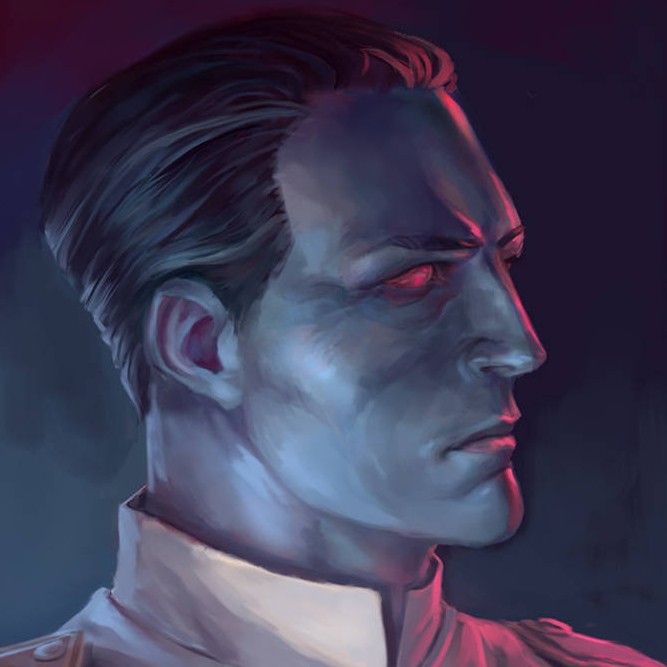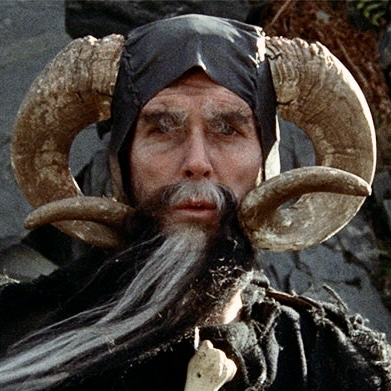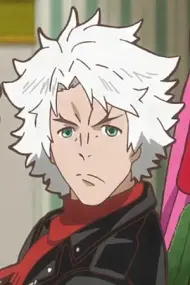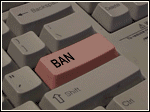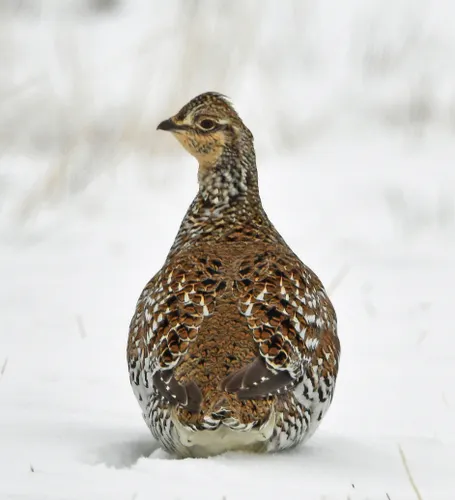With the recent news that the r/blind community has migrated to a lemmy instance, I thought now would be a good time to post a quick PSA on image descriptions.
Blind and low vision computer users often rely on screen readers to navigate their computers and the internet. These tools work great on text-based platforms (when the backend is coded correctly to make buttons and UI elements visible to the screen reader), but they struggle a lot with images. OCR and image recognition have come a long way, but they’re still not reliable.
On Lemmy, there’s no way (yet) to add alt text to image posts, but one thing that we sighted folk can do to make the website a more accessible place for the blind/low vision community is to describe the contents of the image in text, so screen readers (or braille displays) can interpret the text for the user. This doesn’t need to be anything fancy - you can see an example of me doing so in this post here - simply indicate somewhere that you are describing the contents of the image, and then do so in text. If you’re transcribing text, it’s best to do so as exact to the text in the image as you can (including spelling errors!). If you’re describing something visual, it’s best to keep it about the length of a tweet, but be as detailed as you need to be to give context to what you write about in the post.
If you’d like a more detailed guide on how to best do image descriptions and alt text, here’s a site that describes more specifics - https://www.perkins.org/resource/how-write-alt-text-and-image-descriptions-visually-impaired/
Edit: You are able to add alt text to embedded images, as noted by @sal@mander.xyz here. This would only work for images within the text of your comment, not for image posts (topics which link to images).
Edit 2: @retronautickz@beehaw.org wrote a post on kbin on best practices in writing image descriptions and alt text.
I think that you can add captions to images, like this:
I wonder whether these tools would identify and read out the caption.
Ooh good callout, I wasn’t aware of that.
That would only apply to inline images in body text / comments, wouldn’t it?
It works with any image using that markup (comment/post).
I think they were clarifying whether image posts (topics that are an image) could use that, and they cannot. Only inline images can.
Oh, gotcha. Habit of mine is putting the image in the body as well, but that’s mostly to facilitate GIFs that don’t animate in the thumbnail.
Good to know, I’ve edited my latest post to add description text.
we like to see it :)
Thank you!
Thank you for this. I want to help in making the fediverse as user friendly to blind users as possible.
I haven’t posted any photos yet, but I’ll keep this in mind for the future!
awesome post!
just wanted to add that kbin has full support for alt text, so anyone on kbin, please take the little bit of time to fill out the alt text for any images you post
it’s a small bit of work that can make all the difference for someone who needs itApart from adding alt text (which someone in another comment has already explained how), I want to add other ways to help Blind and visually impaired people and other people that require the use of screen readers and text to speech apps (like myself)
- When using tags with more than one word, always write the first letter of each word in uppercase so the screen readers and text-to-speech apps can read them as separate words
#/LikeThis and not #/likethis
- Avoid special fonts as they cannot be detected by screen readers and TTS software. Most of the time the letters are actually phonetic or mathematical symbols and the software interpret them as such.
Thank you! I hadn’t thought about the casing with hashtags, I’ll be sure to be mindful of that from now on.
I usually use images as an additional resource rather than the main one, this is good practice for everyone since links can break, and back in the day it was kind of necessary with so many users on slow dialup, where I wouldn’t have included an image unless it was absolutely necessary (or the point of the post).
Definitely something I will continue to keep in mind and I’ll start adding short descriptions to image posts. =)
Would it be helpful to post a reply to images with the description if they don’t already have them and the poster isn’t interested in adding one? Or do they not generally read the comments?
I’m bumping this issue on the Lemmy GitHub.
If anyone here has some info on how to adequately include conversational dialogue, I’d really appreciate it.
I’ve done some reading on it once I realized kbin, at least, has that option, but I can’t find anything on this topic apart from “Try not to repeat information.” Which I think is implying I shouldn’t mention the speakers’ names more than once? I’m kind of winging it here as best I can.
If you’re transcribing text, transcribe all of the text, including repeated names.
-
Transcribe all text.
-
Explain differences in font, size, style, and case.
-
Explain the direction/order of the text.
-
I’ve no idea about accessibility in general, but that’s not the best advice for a newly aspiring author, much less the senior one.
If you’re new and trying to do two pages of dialogue in your first love story, it can be really easy to repeat the word ‘said’ fifty times in the first page. Spice it up with an extra ‘exclaimed’ or if you’re feeling funny, an extra ‘ejaculated’. Or at least, that’s how that advice goes. The problem with it is that ‘said’ is an invisible word, particularly in stories with dialogue. You might as well try to avoid using ‘the’ in your sentences. Better authors will have characters with individual voices and can skip the ‘person said’ altogether, since the reader will be easily able to distinguish the characters based on the context and the words being said.
For short stuff, keep ‘said’ in. You can have multiple people saying several things in order before it even becomes something you as the author get tired of, much less the audience who won’t read the story more than once anyways. Bare minimum, every character needs a ‘said character b’ done at least twice per scene. People (me) forget who’s talking unless your name is Brian Jacques and you can give every character their own actually well thought out accent. For conversations longer than a couple pages, consider using the occasional alternative descriptor, and also not using any at all.
Don’t avoid ‘said’. You need it to be legible. Just, consider using it slightly less if you have a shitton of talking to describe.
For comic dialogues a lazy
Calvin, being boosted into a tree by Hobbes: “I watched an old movie with mom last night.”
Calvin, on a tree branch: “It didn’t have any violence, explosive action, or swearing. There was nothing shocking about it all.”
Hobbes, climbing the tree: “Did you like it?”
Calvin: “It’s hard to say.”
Calvin, with Hobbes sitting next to him in the tree: “Not having my emotions manipulated is such a weird experience.”storyboard/movie script style would be plenty for everything published to /m/memes. See how acurrate the mental image that script gave you for yourself; https://kbin.social/m/CalvinAndHobbes/t/69427/Daily-Calvin-and-Hobbes-June-21-1993
I’ve written a microblog post explaining how to describe images on my kbin account for those who aren’t sure/don´t know how to write image descriptions.
Be free to ask any question you may have.
If it’s not already there, it might also be worth raising the issue on the lemmy-ui github, just so the developers can see it, and can add to the list of features to implement. If it’s important enough, they can bump it up the list as needed.
It’s great to see this being considered. We all deserve the ability to use these services. Thanks for the PSA!
Fyi, KBin users can add alt text to images.
If you added alt-text, it doesn’t seem to be working. At least not for me.
There’s alt text there. my phone’s TTS app is reading it no problem. But I’m having problems with it on browser i don’t know why
It’s there, but sites often place the alt text in the
titletag as well, so that it shows up when you hover your mouse over it. Here it’s in thealttag only so it seems broken if you’re used to checking with a mouse.I’m on kbin too and I can see the alt text in the raw HTML:
<img src=“https://kbin.social/media/cache/resolve/post\_thumb/51/85/51859cfc559d9aedfa1bec8e33bbb76fd6c3c6d8b8eaf0ee854a68164df83780.jpg” alt=“A machine displaying 108.6 onions per minute. The image is captioned "Tony Abbott’s Mouth".”>
However, my browser isn’t showing me the alt text in the tooltip.
I put alt text in my kbin uploads, but then I couldn’t find it later.
I would also like to be able to preview my image as I’m writing the description. I have to keep looking back at my stored one to try to do it well, and I’m failing.
Same for me, that would be nice. That and being able to see the whole thing in paragraph form instead of four words at a time. I’ve resorted to pre-typing a description into WordPad while I have the image pulled up, and then just copy/pasting it.
Pro tip, hitting enter while typing alt text on kbin will not add a helpful line break like I reflexively want to do, it will submit the unfinished post =_=;;
Pro tip, hitting enter while typing alt text on kbin will not add a helpful line break like I reflexively want to do, it will submit the unfinished post =_=;;
I’ve encountered enough websites and programs that do that to have developed a reflex to hit shift+enter pretty much whenever I want to make a linebreak in any text box these days.
Sounds like a good entry for the issues tracker!
Oh, I was wondering how to report issues. Thanks for that.
But my visibility task is a much lower priority than the one OP describes. They have a lot of stuff going on, and I can wait.
[realizing I want some kind of bookmark feature for this…]
The alt text it’s not visible (I particularly would prefer if it were), but I’ve had no problem reading alt text with my TTS app, so, don’t worry, it’s there.
P.S: Totally agree about the image preview





